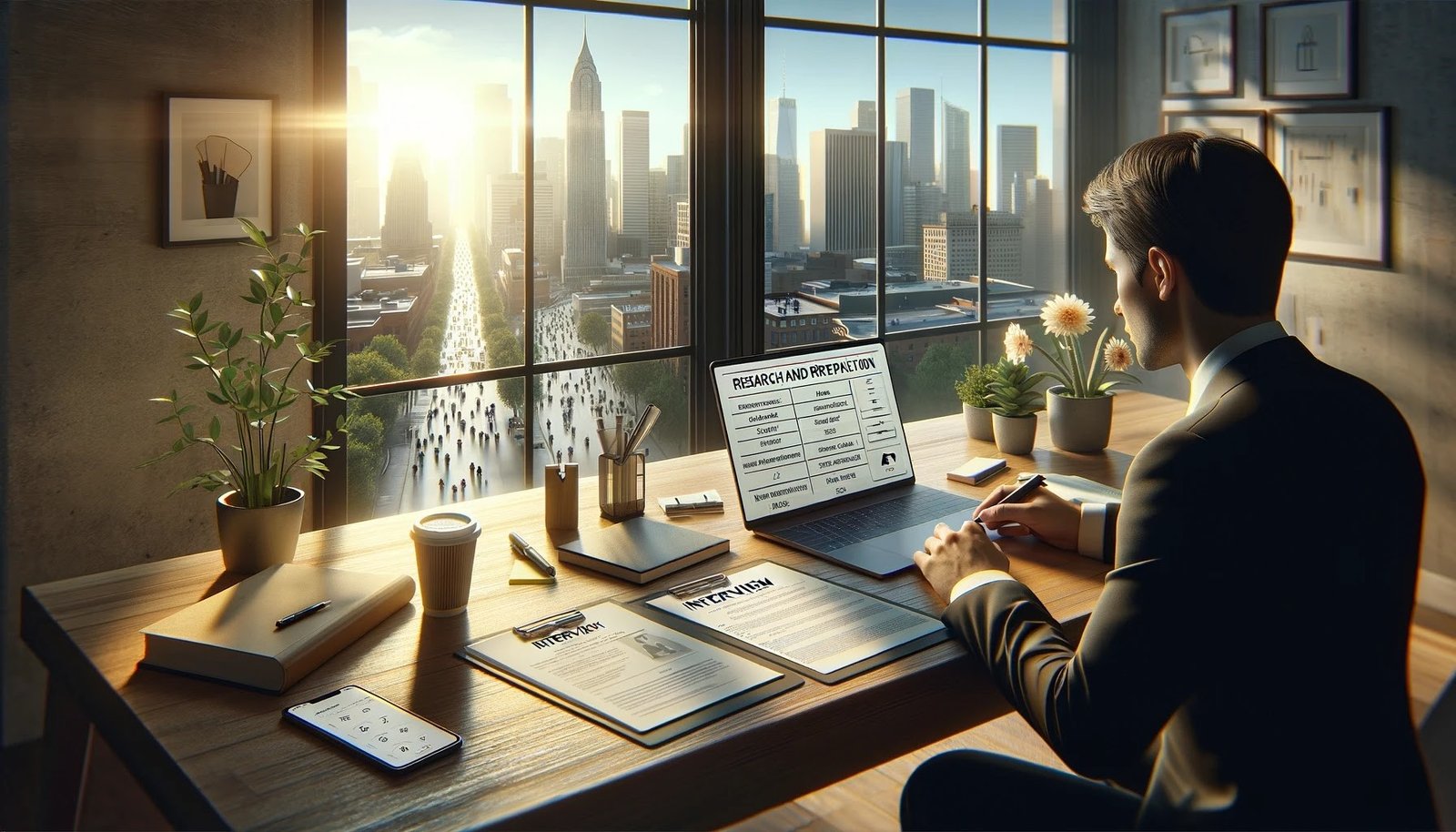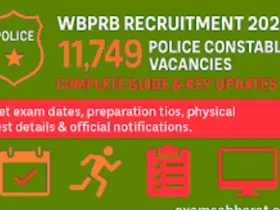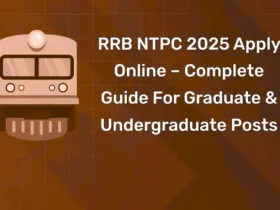Are you feeling nervous and unprepared for your upcoming job interview? Don’t worry, we’ve got you covered! In this article, we will share with you six indispensable tricks that will help you ace your next job interview and land that dream position.
The Importance of Preparing for a Job Interview
Preparing for a job interview is crucial if you want to make a positive impression on potential employers. It shows that you value the opportunity and are serious about the position. By taking the time to prepare, you can increase your chances of success and stand out from the competition.
Researching the Company and Position
One of the most important steps in interview preparation is researching the company and position you are applying for. This will not only help you understand the company’s culture and values but also enable you to tailor your answers to align with their requirements.
Start by visiting the company’s website and familiarize yourself with their mission, vision, and core values. Take note of any tvtoto recent news or projects they have been involved in. This will demonstrate your interest in the company and show that you’ve done your homework.
Additionally, research the position you are applying for. Understand the key responsibilities and requirements so that you can showcase how your skills and experience align with the role. This will enable you to answer questions more effectively during the interview.
Reviewing Common Interview Questions
While you can’t predict every question that will be asked during an interview, there are common questions that often come up. Take the time to review and practice your responses to these questions. This will help you feel more confident and prepared on the day of the interview.
Some common interview questions include:
- “Tell me about yourself.”
- “Why are you interested in this position?”
- “What are your strengths and weaknesses?”
- “Describe a time when you faced a challenge and how you overcame it.”
- “Where do you see yourself in five years?”
Prepare thoughtful and concise answers to these questions, highlighting your relevant skills and experiences. Practice delivering your responses in a confident and natural manner. Remember to tailor your answers to align with the specific job requirements and company culture.
Practicing Your Responses
Practice makes perfect, and this holds true for job interviews as well. Once you have reviewed common interview questions, it’s time to practice your responses. Find a quiet space where you can simulate a real interview environment.
You can practice with a friend or family member who can play the role of the interviewer. Alternatively, you can record yourself answering the questions and review your performance afterward. This will help you identify areas where you can improve, such as speaking too quickly or using filler words.
During your practice sessions, pay attention to your body language and facial expressions. Maintain good eye contact, sit up straight, and use hand gestures naturally. Project confidence and enthusiasm in your responses to leave a lasting impression on your interviewer.

Dressing Appropriately for the Interview
Your appearance plays a significant role in making a positive impression during a job interview. Dressing appropriately shows that you take the opportunity seriously and respect the company’s culture. Here are some tips for dressing for success:
Research the Company’s Dress Code
Before the interview, research the company’s dress code. Understand whether they have a formal or casual dress policy. This will help you determine the appropriate attire for the interview.
If the company has a formal dress code, opt for a tailored suit or a professional dress. Choose neutral colors such as black, gray, or navy blue. For a more casual dress code, you can wear a blouse or a collared shirt paired with dress pants or a skirt.
Pay Attention to Grooming
In addition to dressing appropriately, pay attention to your grooming. Ensure that your hair is neatly styled and that your nails are clean and trimmed. Avoid wearing excessive jewelry or strong perfumes or colognes, as these can be distracting.
Remember, it’s better to be slightly overdressed than underdressed for a job interview. Dressing professionally shows that you are serious about the position and are willing to make an effort.
Preparing Questions to Ask the Interviewer
Towards the end of the interview, the interviewer will typically ask if you have any questions for them. This is an opportunity for you to demonstrate your interest in the role and gather important information. Prepare a list of thoughtful questions to ask, such as:
- “What are the biggest challenges someone in this role would face?”
- “Can you tell me more about the team I would be working with?”
- “What opportunities for growth and development are available within the company?”
- “How would you describe the company culture?”
Asking relevant and well-thought-out questions shows that you have done your research and are genuinely interested in the position. It also gives you a chance to assess whether the company and role are the right fit for you.
Managing Nerves and Practicing Self-Confidence
Feeling nervous before a job interview is normal, but it’s important to manage those nerves and project self-confidence. Remember, the interviewer wants to see the best version of yourself, so take a deep breath and focus on showcasing your skills and experience.
Prepare Mentally and Physically
To manage nerves, take the time to prepare mentally and physically before the interview. Practice relaxation techniques such as deep breathing or meditation. Engage in activities that help you feel calm and centered, such as exercising or listening to calming music.
Additionally, ensure that you get a good night’s sleep before the interview. Being well-rested will help you feel more alert and focused during the interview.
Visualize Success
Visualizing success can be a powerful technique to boost your confidence before an interview. Close your eyes and imagine yourself walking into the interview room with confidence. Visualize yourself answering the questions with ease and leaving a positive impression on the interviewer.
By visualizing success, you are programming your mind to believe in your abilities. This positive mindset can help reduce anxiety and increase your self-confidence during the interview.

Arriving Early and Demonstrating Professionalism
Arriving early for a job interview is crucial to demonstrate your professionalism and respect for the interviewer’s time. Aim to arrive at least 10-15 minutes before the scheduled interview time. This will give you a chance to compose yourself and review any last-minute notes.
- Before the interview, plan your route and familiarize yourself with the location. Consider the traffic conditions and any potential delays. It’s better to arrive early and wait than to be late and start the interview off on the wrong foot.
- Always bring extra copies of your resume to the interview. This shows that you are prepared and organized. You never know if there will be additional interviewers or if your interviewer needs a copy of your resume.
- During the interview, demonstrate professionalism by maintaining a positive attitude and engaging in active listening. Be attentive to the interviewer’s questions and provide thoughtful responses. Avoid interrupting and show respect for their opinions.
- Remember to maintain good posture, make eye contact, and use appropriate body language. A firm handshake and a genuine smile can go a long way in creating a positive impression.
Following up After the Interview
After the interview, it’s important to follow up with a thank-you note or email. This shows your appreciation for the opportunity and reinforces your interest in the position. Here are some tips for crafting an effective thank-you message:
Send a Personalized Thank-You Note
Take the time to personalize your thank-you note. Mention specific points from the interview that resonated with you or highlight any additional information you want to provide. This shows that you were fully engaged during the interview and adds a personal touch to your message.
Keep It Concise and Professional
Keep your thank-you note concise and professional. Avoid going into too much detail or repeating information from your resume. Express your gratitude, reiterate your interest in the position, and thank the interviewer for their time and consideration.
Proofread Before Sending
Before sending your thank-you note, proofread it for any spelling or grammatical errors. A well-written and error-free message demonstrates attention to detail and professionalism. It also ensures that your message is clear and easy to understand.
The Key to Success in Job Interviews
Preparing for a job interview can be a nerve-wracking experience, but with the right strategies, you can approach it with confidence and ease. By researching the company, reviewing common interview questions, practicing your responses, dressing appropriately, and demonstrating professionalism, you will enhance your chances of success.
Remember to manage your nerves, practice self-confidence, and follow up after the interview. By incorporating these indispensable tricks into your preparation process, you’ll be well-equipped to navigate the job interview and land that dream position. Don’t let opportunities slip away – start preparing now and embark on your path to interview success!





